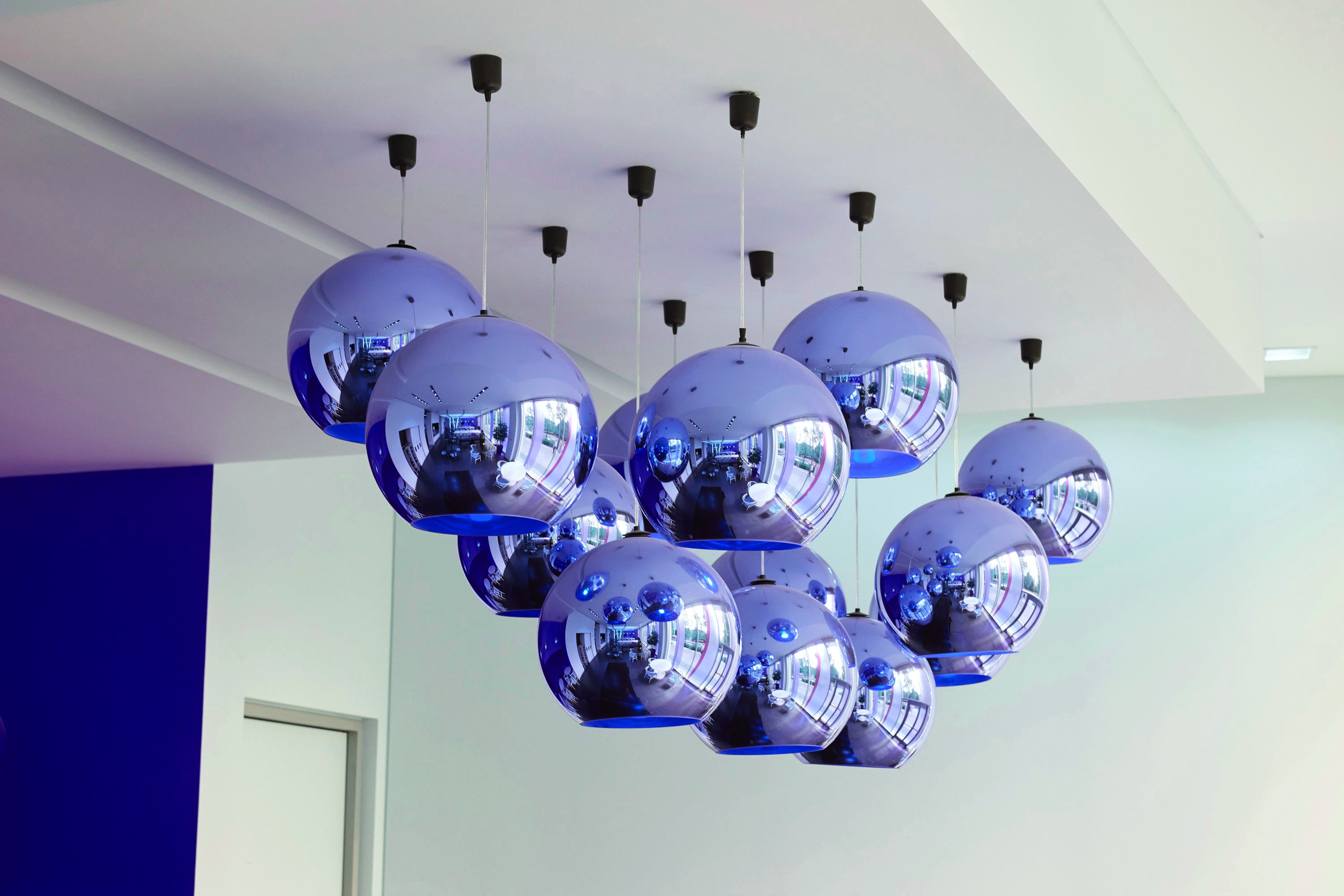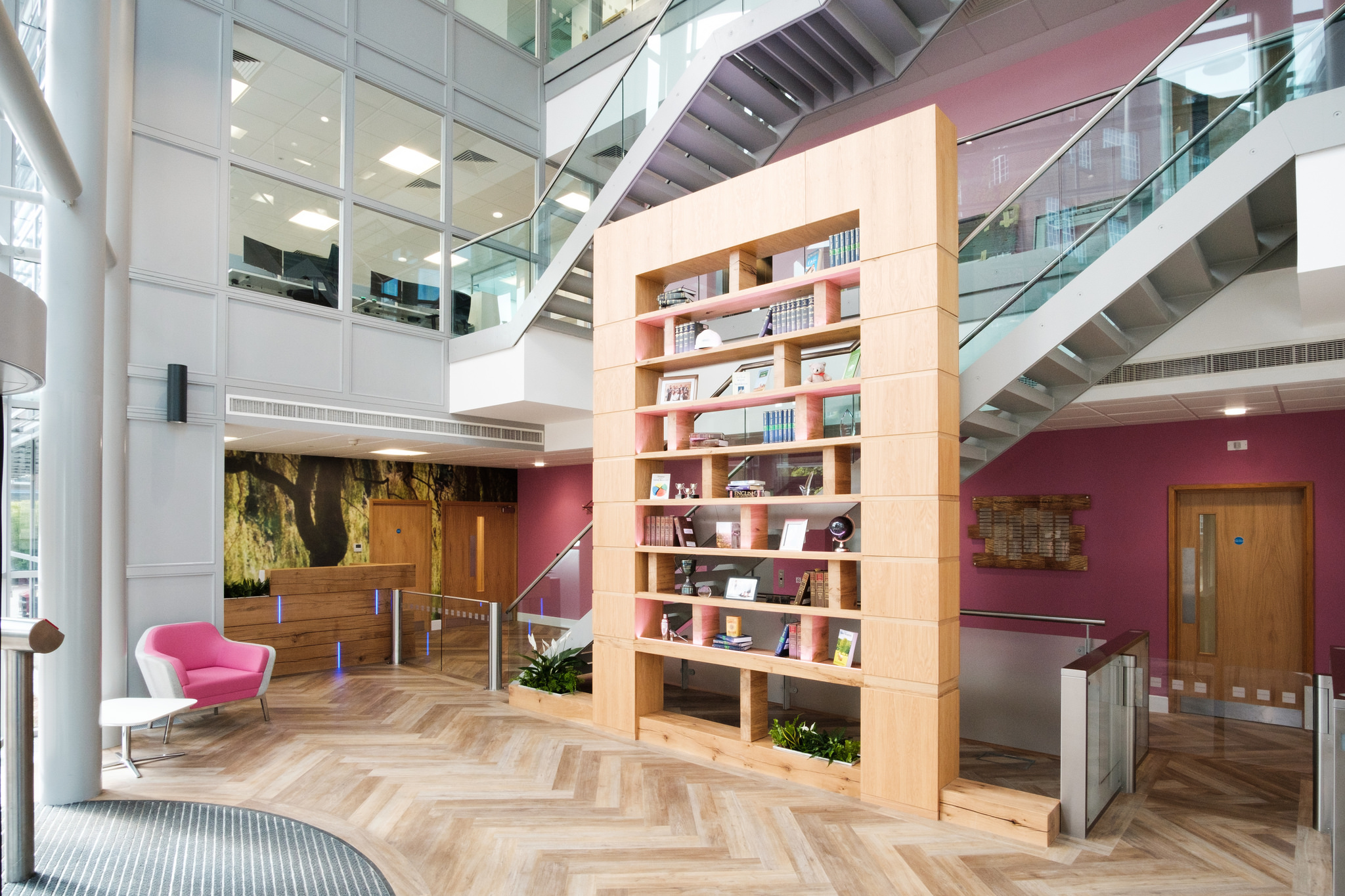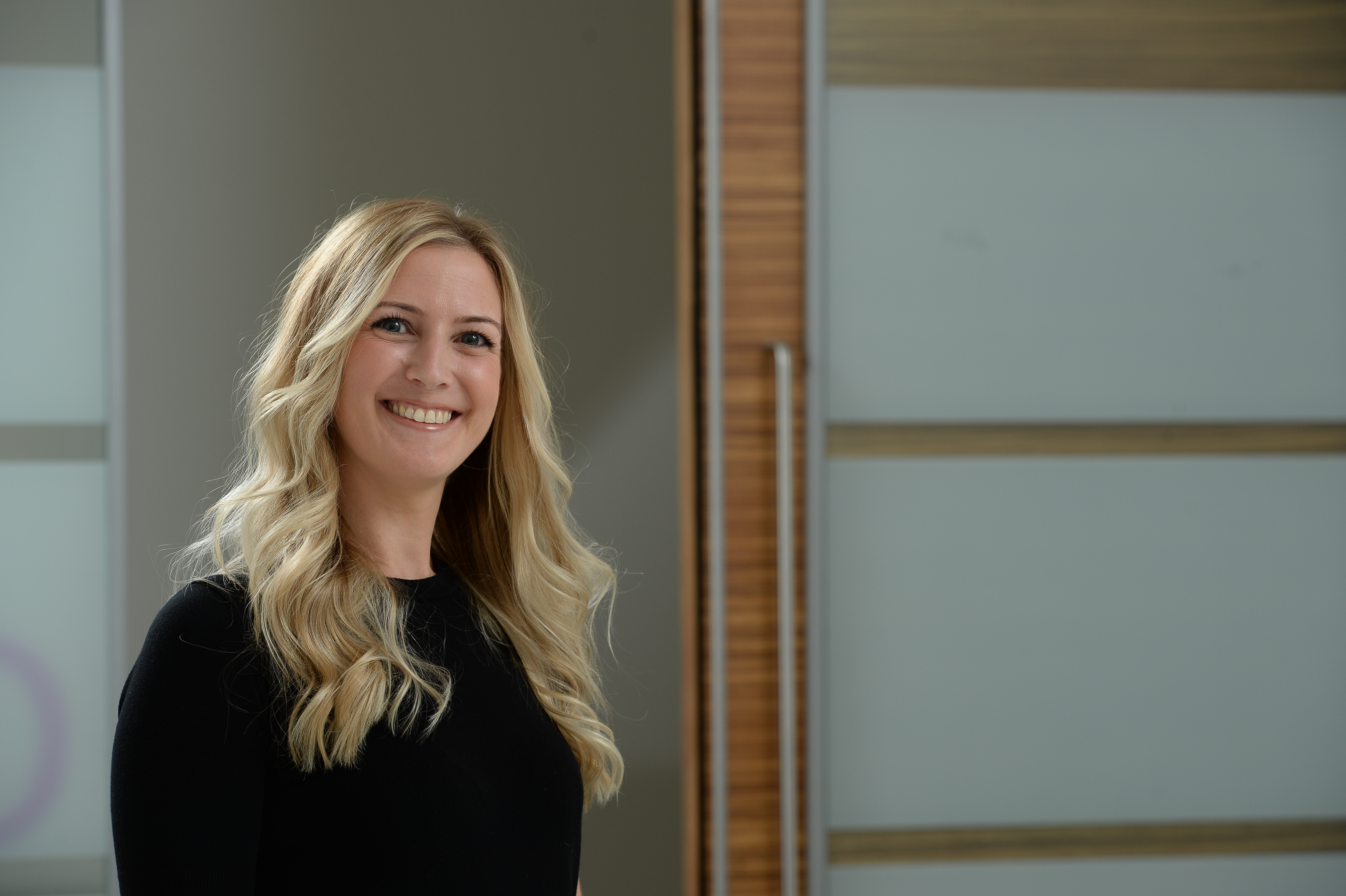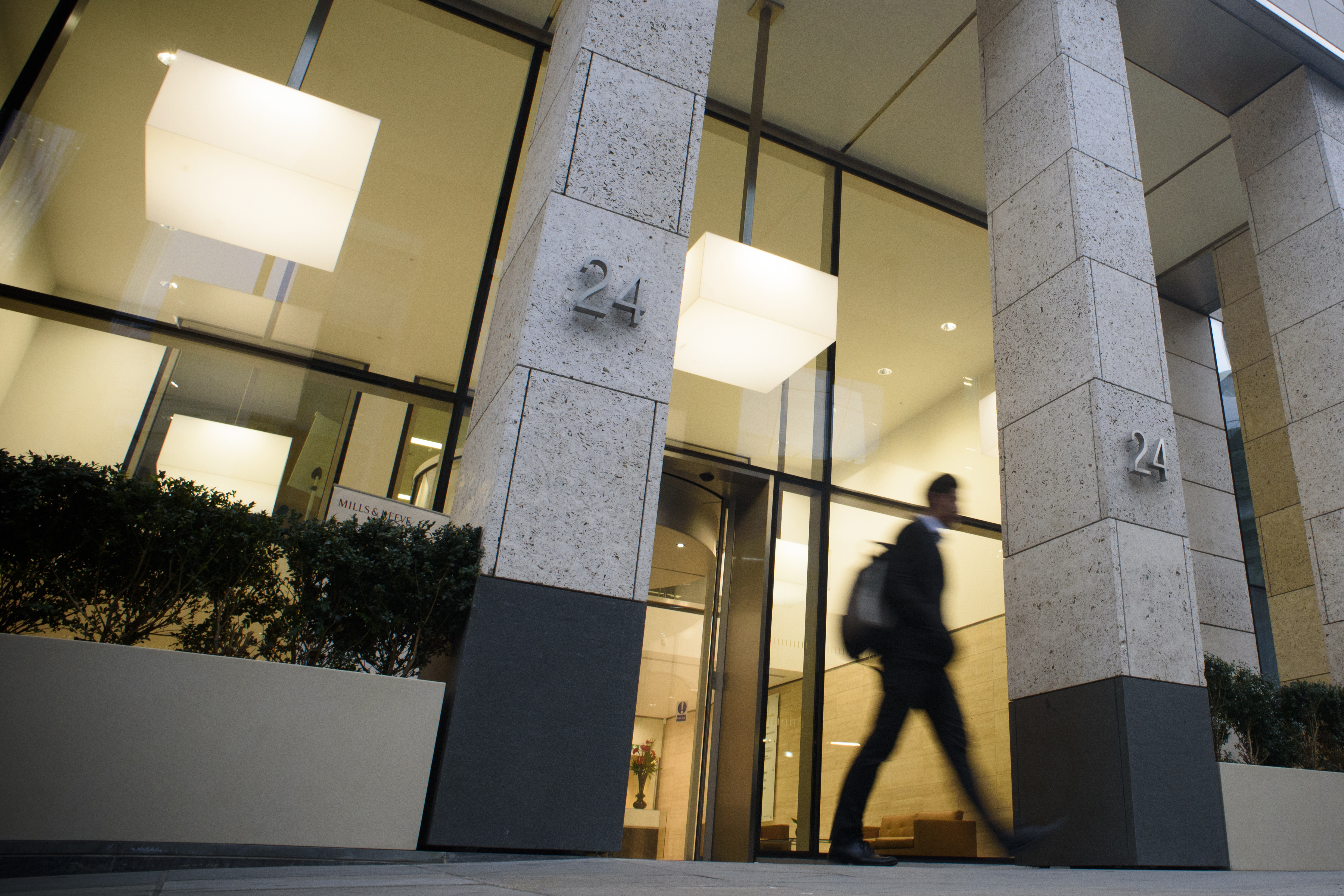Best Trainer – National/Large Regional Firm
TLT LLP

Best Trainer – National/Large Regional Firm
Best Trainer – National/Large Regional Firm
Burges Salmon LLP

The atmosphere and culture at the firm is extremely open and straightforward – and the training you receive reflects that.
“We’re not training trainees at Burges Salmon, we are training lawyers of the future,” enthuses learning and development partner Victoria Goldsworthy. And this attitude is paying dividends as the independent Bristol-based firm scoops its 12th LCN Award, this time for Best Trainer – National/Large Regional Firm – a new record. Burges Salmon’s commitment begins from the moment it welcomes trainees and continues way beyond qualification. “We have what we call ‘The Deal’,” explains trainee partner Andrew Burnette. “This outlines what we provide for our people – and what we expect in return. A strong part of our offering is our commitment to their development throughout their career, starting with the training contract and going all the way through to partnership.”
On a practical level, this is fulfilled through individual training action plans, which are tailored to the needs and objectives of every lawyer. As a former trainee with Burges Salmon, Andrew considers himself living proof that this investment pays off. “Offering vigorous, personalised training programmes is a significant cost,” he points out. “But we’re reaping the benefit, as people join us and tend to stay a very long time.”
We have always had a collegiate atmosphere here because of our relatively small size
As well as formal training which exceeds the requirements of the SRA, Burges Salmon offers practical modules to give trainees a better understanding of what it means to be a practising lawyer. One such session is in time management. “By that, we are not telling the trainees how to do things and when, but rather helping them to discover how they can best manage their own work load,” elaborates Victoria. This so-called ‘soft-skills training’ also features a three-day programme towards the end of a trainee’s second year which helps them to transition into the NQ role and provides feedback on areas such as presentation style and how to best conduct themselves in meetings. For trainees such as second-year Molly Paatz who had never previously worked in an office, these additional sessions have proved invaluable. “There is only so much that your degree and legal practice course (LPC) can tell you about working in a commercial law firm,” she admits. “The fact that I didn’t feel out of my depth when I started at the firm was largely due to how comprehensive the induction training was”.
Crucially, education within the firm goes both ways. “As one year leaves we consider what we can learn from their experiences and compound on or adjust for the incumbents,” explains Victoria. “This year we spoke to our qualifiers six months after qualification to find out what more we could have done to prepare them and make their life as an NQ easier. Based on this feedback we are initiating training on effective communication with different types of people. We were also told that more clarity on the different seats would be beneficial, so we have produced a booklet to help trainees make a more informed choice.”
According to Andrew, the secret of Burges Salmon’s success is that it listens to its people and acts on the feedback it receives. “We have always had a collegiate atmosphere here because of our relatively small size: there’s no them and us here, we’re all in it together.” That the entire firm is compact enough to operate from one building is also significant. “Having a single site can be underplayed but it leads to far more opportunities for our trainees to knock on the door of anyone in this firm,” says Victoria. “No one is ever going to shoot them down for that. It can be harder to develop positive relationships when you are new if it’s over a phone or by email.”

This collegiate atmosphere was what first brought Burges Salmon to Molly’s attention during her time studying at Cardiff University. “A friend first mentioned it to me as a firm that was sporty and a fun place to work,” she recalls. “I was looking for a law firm based in the South West that offered high level commercial work in a great location Burges Salmon was an obvious candidate.”
In order to see firsthand whether the firm lived up to these expectations, Molly undertook a two-week vacation scheme in the summer between her second and third year of university. She was impressed by both the level of involvement she was given as a vac schemer – including sitting in on client meetings – and by the social events designed to make students feel part of the Burges Salmon team.
This involvement in firm life is something that is greatly encouraged from the outset, explains Victoria. “As a firm we support local schools and the community, and we also have committees such as sustainability and charities, and we like trainees to be part of these. But, more than that, trainees take an active role in organising events throughout the year, such as our Strictly Legal dance competition that raises money for charity – it’s good fun and they learn a lot of valuable skills.”
They have the opportunity to enjoy a richer professional experience and achieve things that they wouldn’t have otherwise necessarily thought possible
The vacation scheme – which Molly would highly recommend – culminated in an interview for a training contract, something that the firm made as stress-free as possible. “It was intense but it didn’t feel tricky or scary,” she remembers. “The partner and member of the people team who interviewed me were interested in what I’d done during the fortnight I’d been there, why I wanted to work in law, and specifically at Burges Salmon. There were also more probing questions to push you to your limits and show what you were capable of, but I never felt like they were designed to trip me up.”
This supportive environment is key to the firm’s success as a trainer and, explains Victoria, is underway before they start. “Once they’ve accepted our offer, a trainee is invited to our summer party, to practice area talks, and to meet their peer groups,” she explains. “We encourage those who haven’t already completed their LPC to do it together in Bristol so they get to meet each other and begin building their peer network before they even set foot in the firm.” These efforts meant a lot to Molly. “Little things like receiving Christmas and birthday cards, and being sent a bottle of champagne for my exam results made me feel like they were thinking about me and I was already a part of the team.”
Once the trainees arrive at the firm they can expect plentiful support from all echelons. “Our trainees have a dedicated supervisor with whom they share an office as we feel that they learn a lot from osmosis,” explains Victoria. Supervisors can range in superiority from an experienced associate to a partner and are chosen specifically for their ability and, crucially, because they have the time to supervise. “The trainees require plenty of time and supervision and they deserve the explanation of how their work fits into the wider case,” confirms Andrew.

As well as a supervisor, trainees have a dedicated contact in the people team who sees them through their two years and offers pastoral advice. In addition, each department has a dedicated partner responsible for training. As well as day-to-day advice and support, mid and end-of-seat appraisals provide trainees with the opportunity to speak to their supervisors and people team contact about their progress. “I’ve never felt like support is lacking for either my professional development or pastoral needs,” enthuses Molly. “If ever I have needed help, I have known that there are a number of people I can turn to for it.”
Just as the support and guidance that trainees receive is as likely to come from a partner as it is an associate, so too is the work they receive. “Partner contact varies from one seat to the next depending largely on the size of the team, but there will be certainly be times when you will be working directly for a partner,” explains Molly. “They certainly don’t operate as some sort of scary other – they muck in with the team and make themselves approachable.”
Ensuring that the trainees are provided with high-quality work is a firm-wide commitment. “We seek out stretching situations for them and give them access to high level work and complex matters,” Victoria maintains. However, great care is taken that this stretching stops short of breaking point. “Responsibility is a funny thing,” muses Molly. “Having lots of it is only a good thing if you are ready for it or adequately supported. I would say that I have had appropriate amounts of responsibility which has increased over the course of my training contract as I have improved in competence.”
As Molly and her fellow second years get ready to qualify, their minds will no doubt be filled with the new challenges they will now encounter In Victoria’s opinion, the greatest hurdle which incumbent lawyers face is understanding and meeting client expectations. “They’re higher than they’ve ever been and they trickle all the way down to trainee level – you need to think commercially about the value you bring to your clients and how you conduct yourself way before the point of qualification.”
Andrew agrees that the demands placed on newly qualified lawyers today are weighty. “It’s a very different profession to when I qualified in 2001; it’s much more fast paced. I think a lot of trainees get into the law without quite understanding what is expected of them – and the expectation isn’t coming from the firm, but from clients.”
In order to help trainees understand the needs and requirements of its clients, Burges Salmon offers regular secondments with a firm in the energy sector. Molly was fortunate enough to be offered such a placement at the start of her second year and found the hands-on experience invaluable. “I was able to get a much greater understanding of how big businesses like that are run on the ground, and what constraints and pressures our clients face,” she enthuses. “I also had the opportunity to progress my own soft skills – I had to be very professional and competent in representing the firm. I’d really recommend it to any trainee.”
Andrew believes that it is these opportunities for professional and personal development which set the firm apart from its peers. “We have a genuine commitment to training at Burges Salmon, and it has tangible results,” he argues. “We can see the difference in the quality and sense of fulfillment it is giving our staff. They have the opportunity to enjoy a richer professional experience and achieve things that they wouldn’t have otherwise necessarily thought possible.” Molly agrees that this sense of fulfillment makes Burges Salmon stand out. “Lots of my friends have also had positive experiences with their training contracts,” she confirms. “But I think mine has been differentiated by how much the firm values me as a person and puts into its individuals and how important we all are collectively to the success of the firm. I’ve never felt like one trainee among many.

Best Trainer – National/Large Regional Firm
The atmosphere and culture at the firm is extremely open and straightforward - and the training you receive reflects that.
Best Trainer – National/Large Regional Firm
Mills & Reeve LLP
The supervision is excellent. As a trainee you are treated equally to fellow fee-earners and receive meaningful and valuable work. I was given exposure to clients very early on in my first seat, alongside a brilliant support system.
The commercial world is changing. Gone are the days when success in business was the purview of a privileged view – nearly always pale and male. Law firms are waking up to the fact that in a diverse, globalised environment, clients want to work with lawyers who understand where they come from and the different ways in which they work. However, altering the way that you recruit and train in order to build this diversity is not always straightforward – unconscious bias is, by its very nature, not something one chooses to apply. Yet Mills & Reeve – winner of this year’s LCN Award for Best Trainer, National/Large Regional firm – have found a devastatingly simple and effective solution to the challenge of how to open your eyes. Close them.
“We started using blind CVs the year before last, in one office, as a trial,” explains Training Principal Caroline Dean, who was appointed to the role 18 months ago and has been at Mills & Reeve for 14 years now. “Then we rolled this out to the whole firm.”

Blind CVs – as the name suggests – means that the candidate’s name and academic background is removed from the application after an initial sift. “It’s a really effective way to strip out our own unconscious bias for Russell Group and Oxbridge universities,” Caroline affirms, maintaining that bold actions such as this are the only way to level a heavily skewed playing field.
We stretch our trainees but we support them – and we never stop doing that.
Recruitment advisor Rachel Chapman explains that Mills & Reeve has backed up this commitment by signing up to RARE, which leads the field in diversity graduate recruitment. “The stats have been very positive so far,” she reports.
“We also offered unconscious bias training to the new recruitment team, which is made up of volunteers throughout the firm,” explains Caroline. When the firm first announced that such training would be provided, the only problem they faced was having too many volunteers – which speaks to the fact that this move towards diversity is no box-ticking exercise but the result of a deep-seated culture throughout Mills & Reeve.
Birmingham-based trainee Amandip Dhillon has certainly benefited from this open-minded approach. Born in Germany, Amandip moved to the United Kingdom when she was six and was part of the first generation in her family to go to university. “Coming from a working-class background means that you don’t necessarily have as many opportunities,” she points out. “But you are still determined to succeed and might have to be more creative with the options you pursue .”
Supervisors are experienced and committed and are keen to ensure that trainees experience all the different types of work within a team.
Her unconventional path to a training contract is an excellent example of this. Amandip studied law at the University of Birmingham and was disappointed to miss out on a place on a vacation scheme in her second year. However, she did not let this setback discourage her. “Instead I did voluntary work experience –two to three days a week at a small high street firm during the long vacation,” she recalls. She then sought out and won a scholarship from her university to cover her costs. “The experience really helped me with applications – it’s so important to add things to your CV.”
This commitment and ingenuity are testament to Amandip’s resilience – a quality valued by Mills & Reeve – and helped her to sail over the next few bumps she encountered. When she did not get a training contract straight out of university, instead of despairing, she pivoted and started to apply for paralegal positions instead. “Six months after finishing I had secured a paralegal position at a high street firm working with private individuals,” she explains with satisfaction. However, this was never the end game for her. She was already aware of the firm and she knew that she wanted to stay in Birmingham, so that meant a regional firm and Mills & Reeve is leader of the pack in the Midlands. Amandip did her research – a friend of a friend who was already working as a paralegal there had only good things to say of the firm, while additional enquiries left her impressed with the calibre of clients and the quality of work on offer. Her mind made up, Amandip used her job as a paralegal as a stepping stone, applying for and obtaining a similar position at Mills & Reeve’s private client department.
And there she might have stayed. Firms need paralegals – it is not always in their interest to help them find routes to qualify as lawyers. However, this was not the case at Mills & Reeve. “The team helped me progress,” explains Amandip. “They never tried to hold on to me as a paralegal. They went out of their way to help with my progression and my application – the partners were more than happy to provide me with references!”
More than ever, we’re looking for people who are open, adaptable and flexible.
Part of the need for firms to look beyond traditional routes to law is not only to attract new talent – but also because graduates have opened their eyes to the fact that there is now more than one track to a legal career. Amandip recalls one woman in her intake who had completed a Waitrose graduate scheme before she decided to switch careers and go for law. “She did her GDL part-time, then her LPC and now she’s doing her training contract. The whole environment is more competitive now,” Amandip muses. “People don’t always apply for training contracts while at University any more – they might consider it as an option later on.”
However, while all these new paths to a training contract are well and good, can such innovative thinking extend into the training contract itself?
“Our managing partner likes to say that we have high wires and strong nets,” Caroline laughs. “We stretch our trainees but we support them – and we never stop doing that.”

Mills & Reeve offers six four-month seats – a move that has proved popular with trainees as it exposes them to more departments than they might otherwise experience in the two-year training contract. “I’m still not sure where I want to qualify,” laughs Amandip. “So it’s really good to have extra options. So far I’ve done corporate, construction and real estate in Manchester – it was a really positive experience to work in a different office.”
Given the pace of change between seats, excellent support is critical. “The key is to make sure that there is a rapport between each trainee and their seat supervisor,” Caroline explains. “We make sure we have the right people in place and that they know what’s expected of them. Supervisors are experienced and committed and are keen to ensure that trainees experience all the different types of work within a team. Obviously reviews are an important part of this but it’s also about the day-to-day interaction. This generation needs constant feedback – it’s how they were taught at school. When they do a piece of work they expect feedback there and then.”
Trainees are also allocated a principal, who remains with them throughout the two-year duration of the training contract. “This is a partner,” reports Rachel. “Someone who is very well integrated who can act as a champion for them and also as a mentor. We also match them with a ‘buddy’ from the year above – someone they can go to with the smaller, day-to-day issues – the kind of thing you don’t always want to bring to a partner.”
I’ve worked on some high-value transactions and I’ve felt really involved. It’s never mundane here.
This level of support is crucial over the intense two years of the training contract. Amandip admits that she has found that being a trainee is very different to being a paralegal. “When you’re a paralegal, you’re a fee earner in your own right and you’re managing your own files,” she points out. This situation could not be more different as a trainee. The six-seat training contract inevitably means that trainees often come in half-way through matters. “In the corporate department I was the fourth trainee to work on a particular deal,” Amandip recalls. “It was complex and stressful but it was a really good day when it completed – the clients were really happy. The responsibility feels the right level for a trainee. I’m in contact with clients and I’m trusted to complete matters without someone looking over my shoulder. I’ve worked on some high-value transactions and I’ve felt really involved. It’s never mundane here.”
The support does not stop here but extends to deeper, structural issues as well. “It’s crucial to have the right facilities,” Caroline confirms. Mills & Reeve has been refurbishing all its offices and she explains that they encountered various issues in Norwich when the people there were relocated to a nearby building while improvements were underway. “The temporary space was a very traditional set up and we just had nowhere to go!” she says. “It was really awkward.” In sharp contrasts to this, the refurbished Mills & Reeve offices have placed a high priority on creating more breakout spaces, which in turn allow for informal, spontaneous one-to-ones. “Trainees use those a lot,” adds Rachel. “It’s about taking people away from their computer so that they can meet.”
As well as the less usual six-seat system, the Mills & Reeve training contract also distinguishes itself by offering a significant number of client secondments –a practice from which Amandip has already benefited when she worked as a paralegal. Rachel explains that this is an excellent way for trainees to appreciate the firm’s over-riding focus on client care and to gain experience of working in-house.

So where next for Mills & Reeve? “More than ever, we’re looking for people who are open, adaptable and flexible,” Caroline reflects. “The law is changing – technology and artificial intelligence are going to have a big impact on the way that we do business, so we need people who will be open to that. We’re looking for people with potential, which can take us through to the next stage.”
“Drive is another one,” says Rachel, when considering what qualities the firm is looking for in potential trainees. “We’re looking for the future leaders of the firm – and that doesn’t always mean partners.”
“Commerciality is key for the firm,” Caroline points out. “ We have a very broad church of practice areas – from corporate to family practice; we’re looking for people to advise clients in a wider way, to become their trusted advisers.”
The pace of change shows no signs of slackening. The recruitment and training departments are already at the forefront of new paths to qualification. “We’re spending a lot of time trying to work out our approach to the new Solicitors Qualifying Exam which came out of the Legal Education and Training Review,” Caroline confirms. “And we already have several apprentices. I’d like to see them go all the way through and meet up with the training contract cohort during the two years. It’ll be tricky but if we can make it work it will be worthwhile.” Given the way that Mills & Reeve has already embraced change and acted decisively to transform the way that it recruits, it’s fair to say that they’re looking ahead with eyes open.
By Liz Rutherford-Johnson

Best Trainer – National/Large Regional Firm
The supervision is excellent. As a trainee you are treated equally to fellow fee-earners and receive meaningful and valuable work. I was given exposure to clients very early on in my first seat, alongside a brilliant support system.

